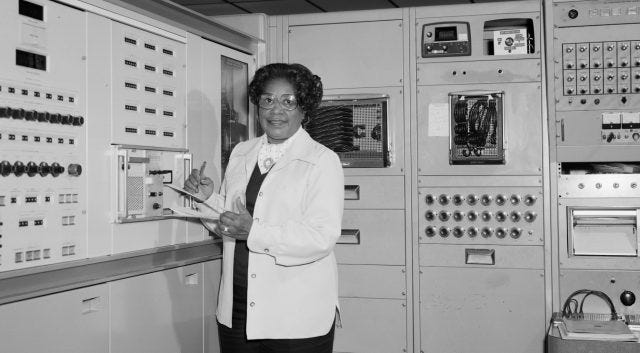Honoring Mary W. Jackson: NASA Names Headquarters After a Pioneer
Written on
Chapter 1: Mary W. Jackson's Legacy
In a remarkable announcement this week, NASA executive Jim Bridenstine revealed that the agency will honor Mary W. Jackson by naming its headquarters after her. Jackson was one of the pivotal figures featured in the 2016 film "Hidden Figures," where she was portrayed by actress and musician Janelle Monae.
Bridenstine stated:
> "Mary W. Jackson was part of a remarkable group of women who were instrumental in NASA's success in launching American astronauts into space. She defied conventions and played a crucial role in breaking barriers for African Americans and women in engineering and technology. Today, we proudly present the Mary W. Jackson NASA Headquarters building, which fittingly resides on 'Hidden Figures Way.' This serves as a reminder of the many talented professionals whose contributions have shaped NASA's history. No longer hidden, we will continue to honor the achievements of women, African Americans, and individuals from diverse backgrounds who have enabled NASA's storied exploration efforts."

Mary Jackson's journey began in 1958 when she became NASA's first Black engineer after obtaining special permission to attend engineering classes at a segregated institution. Over nearly two decades, she made significant contributions as an engineer, eventually leading the Federal Women’s Program and the NASA Office of Equal Opportunity before her retirement in 1985. Following her passing in 2005, she received the Hidden Figures Congressional Gold Medal Act posthumously in 2019. For years, her vital contributions to science, alongside those of Katherine Johnson and Dorothy Vaughan, went largely unrecognized.
Chapter 2: The Importance of Representation
Space exploration has always fascinated me. My early interest was sparked by reading about the solar system, and I fondly remember writing a fourth-grade story about NASA. My first significant memory of a national event was witnessing the Challenger explosion live. Films like "The Right Stuff" and even "SpaceCamp" have left a lasting impression on me.
However, throughout my education and experiences, I never learned about the contributions of women like Mary Jackson, Katherine Johnson, and Dorothy Vaughan. The narratives surrounding the Apollo missions often excluded the crucial roles played by African-Americans, particularly women, in these monumental achievements. It seems that the discussions around these topics were overshadowed by the accomplishments of figures like Aldrin, Armstrong, and Collins.
While I am not suggesting that there should have been African-Americans depicted in every scene, the lack of representation in films like "The Right Stuff" is indicative of a broader issue: the erasure of African-American contributions to NASA's successes. This omission is not merely an oversight; it reflects a historical narrative that has often marginalized these voices.
It's common for individuals to question the necessity of diversity in representation or the significance of renaming institutions. However, these actions are crucial in crafting a more accurate account of who has contributed to America's accomplishments and, more broadly, to human progress. Naming the NASA Headquarters after Mary W. Jackson is more than just a symbolic gesture; it is a recognition of the hidden figures who played essential roles in shaping history.
By honoring the contributions of those who have been overlooked, we challenge the myth that the Apollo Program and NASA's advancements in aeronautics were solely the work of white men. Figures like Jackson, Johnson, Vaughan, and others deserve enduring recognition for their groundbreaking achievements. After all, the mission statement is not merely "We came in peace," but rather, "We came in peace for all mankind."
Now Read: Astronomers Give Asteroid Moon a New Name Before NASA Hits It With a Spacecraft, NASA Will Allow SpaceX to Reuse Rockets and Capsules for Astronaut Launches, NASA Loads Sample Return Containers Into Perseverance Mars Rover